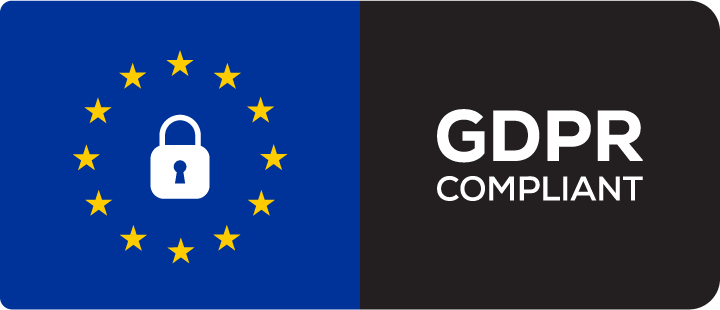Discover how AI is transforming virtual health coaching by enhancing personalized care, improving efficiency, and providing real-time health insights for better outcomes. Learn about the future of AI-driven health coaching today.
Introduction
The era of generic fitness plans and one-size-fits-all wellness advice is over. Artificial intelligence (AI) has been instrumental in this transformation of virtual health coaching, where a personalized data-driven approach is taken towards realizing individual’s health goals. Can you picture yourself having a pocket companion that supports you all the time? A companion who can design workout programs to fit your needs, interpret sleep patterns, and offer useful tips for leading a better life. This is what AI will do to future virtual health coaching. This article explores the fascinating world of AI-enhanced virtual coaching, its advantages, working mechanisms, and how it shifts our attitude to healthcare.
How AI is Revolutionizing Virtual Health Coaching
Artificial intelligence (AI) is advancing rapidly in many fields, one of which being virtual health coaching. Virtual health coaching is growing more personalized, efficient, and accessible with the help of AI technologies. Here’s how they’re doing it:
Plans Based on Personal Needs
Algorithms powered by artificial intelligence are capable of scrutinizing vast amounts of data from several sources – medical records, wearable fitness devices, personal health histories – to create plans that suit individuals. These programs can modify themselves as a person progresses or provides feedback so that everyone gets what they need for guidance at any given time. By addressing their unique needs and situations this kind of individualization makes it easier for users to achieve their goals.
24/7 Availability and Support
The most notable benefit AI brings into virtual health coaching is being available all day every day. Virtual coaches who run on AI can offer nonstop support and motivation even when a person has a tight schedule or lives in a different time zone where there may be no other options but to work overnight shifts so sleep during traditional hours becomes impossible; this ensures that people are never left without aid thus increasing adherence rates towards healthy living plans leading to better outcomes.
Real-Time Monitoring Plus Feedbacking
Tools backed up by AI have the ability to track users’ health metrics continuously through wearables like smartwatches or mobile applications. The information collected here is then analyzed further giving instant suggestions and responses which helps someone make more informed choices about their lifestyle or overall well-being. For instance an artificial intelligent system might keep record of how much someone exercises each day while also keeping track of what time they go to bed at night and what types of food were eaten throughout the day; hence providing them with tips meant for improving their general self-care habits.
Greater Accessibility
Health coaching with an AI touch extends its reach beyond just those who live near big cities or can easily get around due to limited mobility issues (this is especially true when talking about remote areas). This is because AI tools/applications deliver personalized assistance without having to meet face-to-face; thereby breaking barriers that come with traditional models of health coaching. In short this makes more people have access to professional healthcare guidance regardless where they reside.
Understanding Behavior so as To Motivate
Artificial intelligence can study behavior patterns and recognize what factors may be influencing one’s decision-making process related to their health. Knowing these habits will enable virtual coaches to recommend strategies for motivation on an individual basis which often makes sticking with certain lifestyle changes much easier. For example: if an AI were aware that a particular user needs rewards in order for them exercise regularly then it would tailor its approach towards providing such incentives thus increasing chances of success rates.
Saving on Costs
Virtual health coaching saves money by eliminating the need for human coaches meet clients physically one-on-one. This allows service providers in this sector scale up easily and reach out wider section of people thereby making it more affordable than before; such cost effectiveness opens doors even those who cannot afford traditional coaching services hence democratizing healthcare through artificial intelligence.
Working Together with Others
Anticipatory systems approach to health care can help in minimizing the risk of chronic illnesses and enhancing general health results by detecting potential health problems before they occur. For example, artificial intelligence may indicate initial symptoms of ailments such as diabetes or heart diseases, which then alerts people to visit doctors when their states have not become worse.
Unceasing Learning and Enhancement
Artificial intelligence continuously learns and enhances its performance based on users’ feedbacks and reactions towards it. This never-ending advancement implies that virtual healthcare coaches would give more accurate advice that yields better outcomes with time. With wider coverage, the AI can adjust its algorithms so as to comprehend user preferences and requirements better, thus improving the quality of coaching generally.

Continuous Learning and Improvement
Virtual health coaches get better with time as they keep learning from user interactions and results. This implies that the evolution only makes their recommendations and support more accurate and useful. The algorithms of artificial intelligence are able to differentiate between the wants and requirements of different users which leads to improved quality in health coaching as a whole through its increased information base.
Ethical Considerations of AI in Virtual Health Coaching
Artificial Intelligence (AI) use in virtual health coaching comes with a lot of benefits such as individualized care, convenience and effectiveness. However, at the same time it raises several ethical considerations that need to be taken into account for its safe, fair and successful utilization. Here are some of the key ethical considerations:
1. Privacy and Confidentiality
In health coaching AI systems handle sensitive personal healthcare information. It is vital that such data is securely stored and transmitted. Strong encryption methods, strict access controls and compliance with data protection laws like GDPR or HIPAA are necessary to ensure privacy and confidentiality.
2. Informed Consent
Users should know how their data will be used by an AI system. This involves knowing what kind of data is collected; why it’s being collected; any risks involved etcetera. It’s therefore necessary to get explicit permission from users which is an ethical obligation.
3. Bias and Fairness
If trained on biased data, AI systems can unintentionally reinforce or even worsen existing biases thereby leading to unfair treatment among different groups based on certain demographics. To promote fairness and justice in health coaching services it is important that AI algorithms are trained using varied datasets while being audited for bias regularly.
4. Transparency and Accountability
AI systems should operate transparently so that people can understand how decisions were arrived at as well as recommendations given on what grounds they were made etcetera. Moreover there must be clear mechanisms through which someone can be held accountable where if an error occurs in an AI system there should exist simple ways through which it can be addressed or rectified.
5. Accuracy and Reliability
Recommendations made during health coaching significantly affect a person’s overall welfare thus AI systems need thorough testing with regards to accuracy plus reliability since people rely upon them heavily.Continuous monitoring coupled with updates becomes very necessary whenever current evidence-based guidance provision by the Artificial Intelligence is expected.
6.Human Oversight
Though AI might boost health coaching services ,it should not replace human judgment rather there must always be human oversight to ensure that AI’s recommendations are suitable for an individual based on their specific needs and circumstances. Interpretation as well as application of AI-generated insights should involve health coaches.
7. Autonomy and Empowerment
AI systems should not undermine the autonomy of users but instead empower them. People ought to have control over their healthcare data and make informed decisions about their own wellness. In addition, artificial intelligence ought to enhance individuals’ ability to effectively manage their health.
8. Ethical Use of Technology
The use of artificial intelligence in health coaching should follow ethical principles which prioritize user welfare over commercial gains.Developers/providers need to commit themselves towards responsible usage of AI so as to avoid any practice that may harm clients or exploit their information.
9. Accessibility and inclusivity
AI-based healthcare guidance must be made available for all individuals irrespective of socio-economic status, geographic location or technological know-how.Efforts must therefore be channeled towards ensuring that everyone benefits from such like services in a wide-ranging manner within the context of coaching people about good health practices through technology
Case Studies: Success Stories of AI in Virtual Health Coaching
Here are some key achievements and references for the success stories of AI in virtual health coaching as discussed:
Noom: Personalized Weight Loss Coaching
Key Achievements:
- Over 50 million users worldwide have engaged with Noom for personalized weight loss coaching.
- High retention rates are driven by the app’s personalized approach, which includes custom meal plans, exercise routines, and motivational support.
- Significant weight loss results, with many users reporting substantial weight loss. For instance, individuals have reported losing between 20 to 130 pounds through the program.
Lark: AI-Driven Health Coach for Chronic Disease Management
Key Achievements:
- Lark’s AI-driven coaching has helped reduce A1C levels in diabetic patients.
- Users have seen improved blood pressure control, which is crucial for managing hypertension.
- Enhanced patient adherence to treatment plans due to the personalized and interactive nature of the app.
Fitbit: AI-Powered Fitness and Wellness Coaching
Key Achievements:
- Increased user engagement and activity levels through personalized health and fitness coaching.
- Improved sleep quality due to AI-driven insights and recommendations.
- Enhanced overall fitness and wellness outcomes, with users reporting better health metrics.
HealthTap: AI-Assisted Virtual Health Consultations
Key Achievements:
- HealthTap conducts over 100,000 virtual consultations per month, significantly improving access to healthcare.
- High user satisfaction with the accuracy and timeliness of AI-driven health advice.
- Reduced waiting times for medical advice, making healthcare more accessible and efficient.
K Health: AI-Powered Symptom Checker and Health Coach
Key Achievements:
- Millions of users benefit from K Health’s AI-driven health insights.
- The app boasts high accuracy in diagnosing common medical conditions, enhancing user trust and reliance.
- Improved patient outcomes through personalized care plans based on AI analysis.
FAQ’s
What are some examples of AI-powered virtual health coaching platforms?
For instance, Noom employs artificial intelligence to provide personalized weight loss coaching, Lark concentrates on chronic disease management while Fitbit offers AI-driven fitness and wellness insights.
How does AI improve user engagement in health coaching apps?
AI does this through giving interactive and adaptive experiences like personalized challenges,motivational messages,real-time feedback among others which helps in keeping users motivated towards their health goals.
Are there any privacy concerns with using AI in health coaching?
Yes, there are privacy concerns mainly around sensitive health data collection and use. It is important that AI platforms for health coaching adhere to data protection laws and ensure safe storage as well as management of user information.
How effective are AI-driven virtual health coaches compared to traditional health coaches?
Research findings coupled with feedback from individuals indicate that virtual coaches driven by AI can be very effective sometimes surpassing or matching the satisfaction levels achieved by their counterparts working under traditional settings besides fostering more engagement leading to improved health outcomes.
What is the future of AI in virtual health coaching?
The future of AI in virtual health coaching involves better algorithms that can predict human behavior accurately based on past patterns recorded during similar situations integrated wearable technology devices among others making it not only personalized but also accessible even further than before predictive analytics
Conclusion
The introduction of artificial intelligence into the field of virtual healthcare mentoring represents a major milestone within this sector. Through such tools driven by machine learning and data science models have completely changed the process used when offering advice concerning individual wellbeing; thus resulting into faster delivery time frames coupled with increased efficiency levels at all points along the patient journey. This has been achieved through an analysis of large amounts of information collected from various sources including patients’ historical records which were then subjected to real-time monitoring systems capable detecting abnormalities early enough so as initiate corrective measures promptly where necessary.
This shift not only gives people power over their own care but also equips them with enough knowledge needed in order to make sound decisions about what needs to be done at any given time. It also provides coaches with more details about each individual thus enabling them respond appropriately whenever called upon by offering relevant advice in line with current situations. As technology advances further into areas like predictive analytics there will be even greater possibilities for better outcomes through improved care coordination among different providers within a global village setting.







